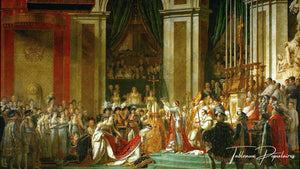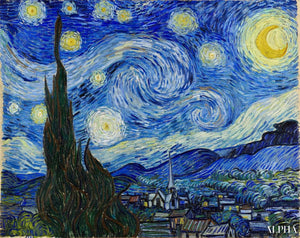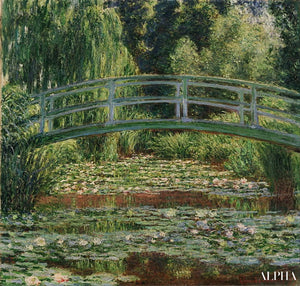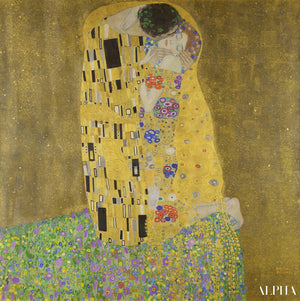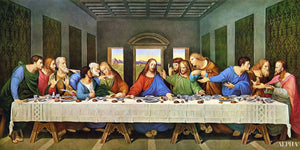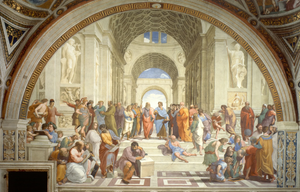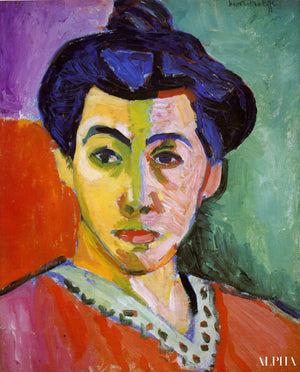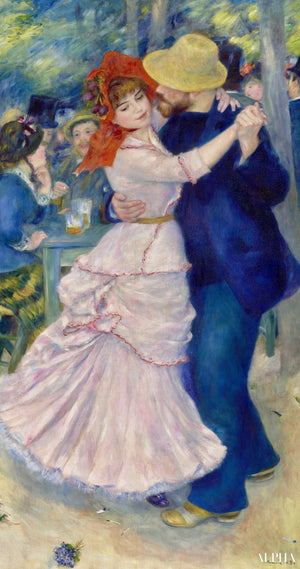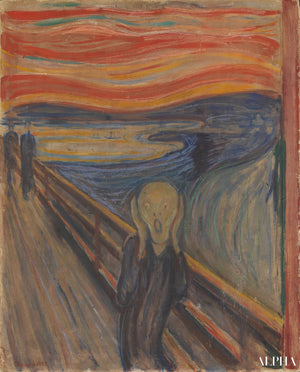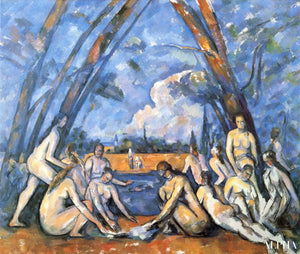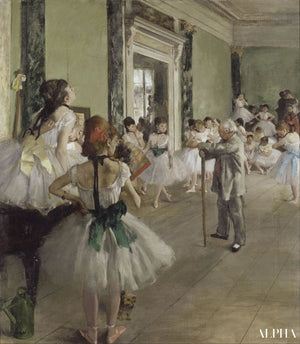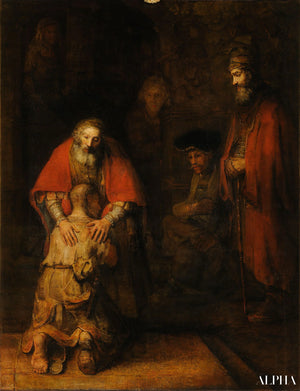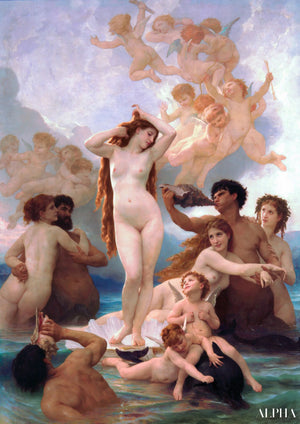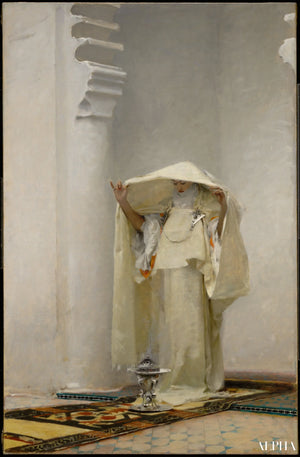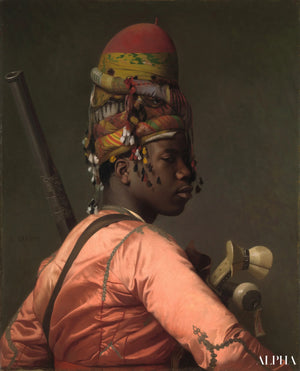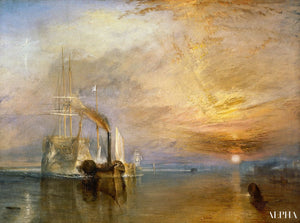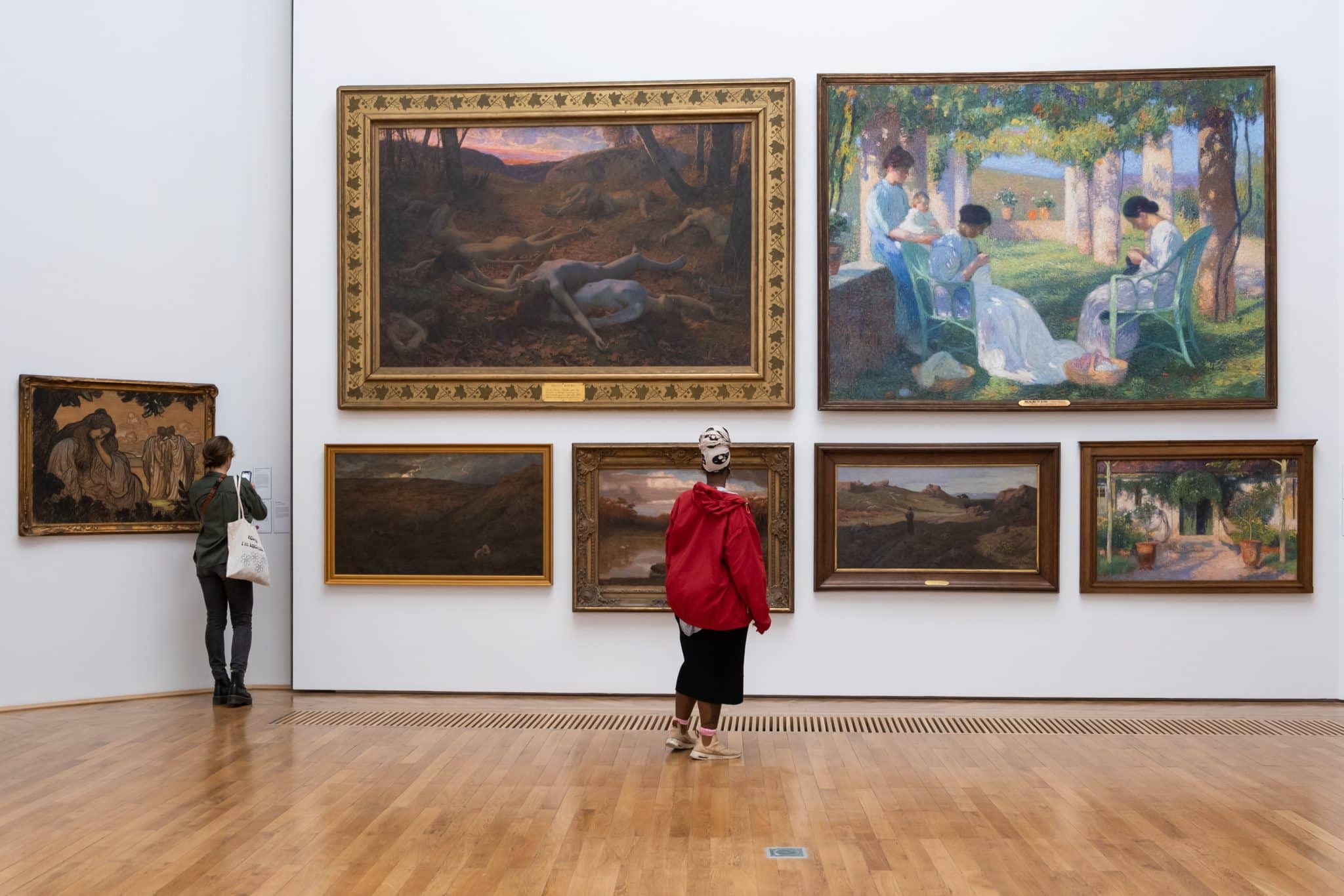
The Sick Child - Edvard Munch
Pickup currently not available
🌟 Introduction – Immersion dans l'History of The Sick Child - Edvard Munch
📍 Historical context of The Sick Child
Work: The Sick Child
Artist: Edvard Munch
Year: 1907
Museum: "degenerate art" collection
Dimensions: 121 x 121 cm
Created in 1907, this painting is anchored in the tumultuous context of the early 20th century, a time marked by profound social and cultural upheavals, particularly in Oslo, the artist's hometown. The work is part of the expressionist movement, which urges the exploration of human emotions through a vivid palette and distorted forms. Currently, this canvas is part of the "degenerate art" collection, now exhibited in various institutions that honor the artistic legacy.
🖋️ Significant anecdote of Edvard Munch
“Pain is a form of truth” Munch might have said while contemplating the heartbreaking faces of his subjects. One foggy morning, as he walked the streets of his hometown, a sick child's face, imbued with suffering, captured his gaze and ignited his imagination. Thus was born the evocative power of this painting, which transcends the mere canvas to become a cry of life.
📖 Scene depicted in The Sick Child
In this canvas, Munch explores the fragility of childhood. The viewer's gaze is drawn to the face of a sick child, awakening a deep melancholy. The atmosphere emanating from this canvas is imbued with sadness, set in a hospital room, while a protective mother is illustrated by their side. The warm colors, mixed with dark tones, illustrate the struggle between life and death, plunging the viewer into an intense emotional universe.
📜 Place in the work of Edvard Munch's career
The Sick Child represents a significant turning point in Munch's career, illustrating his style in full maturation. This masterpiece can be paralleled with "The Madonna" and "The Scream," two other iconic paintings where the artist explores similar themes of suffering and melancholy, marking a peak of his pictorial technique.
🧠 Artistic Expertise – In-Depth Analysis of The Sick Child - Edvard Munch
🎨 Painting technique of the work
Munch uses here the technique of impasto, creating successive layers of paint to enhance the emotional relief of this canvas. The broad and dynamic brushstrokes capture despair and vulnerability, each touch of color building a dialogue between light and shadow, intensifying the message of the painting.
🌈 Color palette of The Sick Child
Munch's palette oscillates between deep reds and washed-out yellows, each carrying a powerful emotion. The red symbolizes passion and suffering, while the yellow evokes flickering hope. This color combination gives an intensity that brings the soul of this painting to life, thus sculpting a poetic atmosphere.
🖌️ Craftsmanship – High Precision Reproduction for the expressionist style
Each reproduction of this oil painting is an ode to meticulous craftsmanship. Made on museum-quality linen canvas, each sketch is carefully handworked. With 40 hours of work dedicated, including respect for the original proportions and the application of high-quality pigments such as Prussian blue and alizarin crimson, this work aims to be faithful to Munch's spirit. Let us remember that each piece is also protected by an anti-UV varnish, ensuring the longevity of the artistic message.
Much more than a simple copy, this reproduction of The Sick Child is a second work that carries the passion and emotion of the original masterpiece, ready to resonate in the heart of its new home.
📜 Customer Experience – Elegance & Commitment
Your canvas comes with a numbered certificate of authenticity. It is delivered rolled in a textile case, with meticulous care given to the packaging: reinforced tube and tissue paper for optimal protection.
Choose from our premium frames: satin black gallery frame, gold leaf wood, light oak, or modern floating frame. Each option enhances the canvas, integrating into the elegance of your interior.
💫 Emotional or Symbolic Reading of The Sick Child - Edvard Munch
This painting whispers precious feelings, ranging from peace to nostalgia. It invites us to sincere introspection. This canvas transforms into an inner mirror, a space for meditation that echoes buried memories, oscillating between pain and redemption, thus creating a deep emotional connection with those who contemplate it.
🏡 Decor Suggestions – An Inspiring Presence
Hang this canvas in a soft bedroom, a bright living room, or even a calming corridor. Pair it with natural materials: linen, wood, and marble, while evoking atmospheres such as morning light or evening calm. This painting lends itself to uniquely enriching your living space.
🖌️ The Excellence of Alpha Reproduction
🎨 Oil painting on linen or cotton canvas
👨🎨 Hand reproduced by expert artists
📜 Numbered certificate of authenticity included
🖼️ Custom premium frames available
⏱️ Completion in 10 to 15 working days
📦 Secure delivery in 3 to 5 working days worldwide
✅ Why choose “The Sick Child - Edvard Munch”?
- 🎨 Masterpiece of the expressionist movement
- 🖼️ Bright composition ideal for contemporary wall decoration
- 🎁 Exclusive offer: 1 painting purchased = the 2nd at -50%
🛒 Order your Reproduction of “The Sick Child”
Gift yourself a masterpiece, to beautify your space and nourish your spirit. This oil painting, hand-made, is a treasure of emotion ready to become your visual legacy.
🚚 Premium conditions
Worldwide delivery assured | Reinforced packaging | 3D-Secure payment | 30-day return
Why choose Alpha Reproduction?
| Caractéristique | Alpha Reproduction | Autres Reproductions à l’Huile |
|---|---|---|
| Support |
★
★
★
★
★
100% cotton canvas
|
★
★
★
★
☆
Cotton canvas or polycotton blend
|
| Technique |
★
★
★
★
★
100% hand-painted oil painting by a professional artist
|
★
★
★
☆
☆
Hand-painted (variable execution level)
|
| Relief & texture |
★
★
★
★
★
Visible brush thickness, lively texture
|
★
★
★
☆
☆
Relief sometimes too smoothed or automated
|
| Colors & pigments |
★
★
★
★
★
Rich, durable pigments, protected by satin varnish
|
★
★
★
★
☆
Pigments sometimes diluted or poorly protected
|
| Price vs Quality |
★
★
★
★
★
Excellent value for genuine art
|
★
★
★
☆
☆
Prices can sometimes be high without a guarantee of consistent quality
|
| Customer experience |
★
★
★
★
★
Free delivery, satisfaction guaranteed, human service
|
★
★
☆
☆
☆
Irregular delays, sometimes distant service
|
